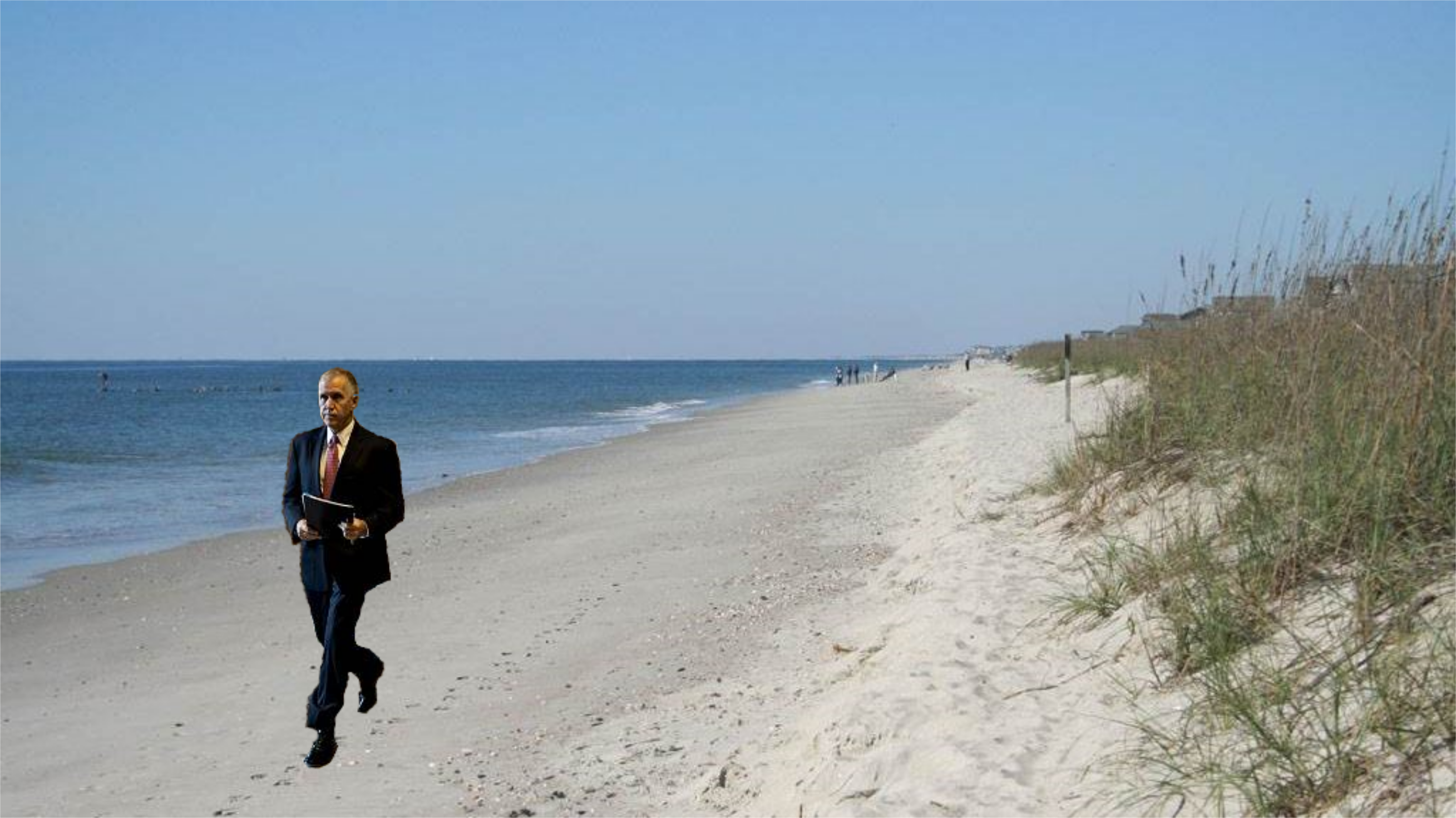It is day two of the Trump Administration. Yesterday saw a flurry of Executive Actions targeting immigration, climate change, energy, and social and justice issues. Trump also issued an executive order to overrule Trump’s Supreme Court’s upholding of Trump’s TikTok ban.
In a sea of disinformation fueled by both propaganda, the reaction economy of social media, and AI-generated slop, it can be nearly impossible to tell what in this wave of executive actions represents a real threat, what is less consequential than it seems, and what is ultimately ineffectual grandstanding. We’re ocean scientists and ocean policy experts. We know oceans. And for the next four years, we have an obligation to help separate the signal from the noise when it comes to administrative actions that affect the oceans.
So lets dive in.
Revoking President Biden’s Executive Orders
First on the list of meaningful EOs is Initial Rescissions of Harmful Executive Orders and Actions. This catch-all Order revokes a slew of President Biden’s Executive Actions. Among those which directly or indirectly impact the ocean, Trump has rescinded:
- Protecting Public Health and the Environment and Restoring Science To Tackle the Climate Crisis which directed federal agencies to review Trump era regulations that conflicted directives to confront the climate crisis.
- President’s Council of Advisors on Science and Technology which established a council of science and technology experts to advise the president.
- Tackling the Climate Crisis at Home and Abroad which placed the climate crisis at the forefront of US Foreign Policy and National Security.
- Climate-Related Financial Risk to develop a strategy to incorporate climate crisis-related impacts into financial risk assessments.
There are a host of other EOs related to environmental justice, preparing for climate crisis-related immigration, and advancing other climate goals. Ultimately, these EOs largely expired with the outgoing administration, and while they speak to the current president’s priorities, they don’t represent new actions in themselves.
The direct threats to the ocean, however, are a trio of EO’s that removed protections President Biden put in place to prevent offshore exploration for oil and natural gas on the outer continental shelf, including the outgoing president’s hail Mary attempt to prevent rapid expansion of the offshore oil industry. The Outer Continental Shelf Lands Acts is a weird, complicated thing. The president has the power to close lands and protect them from leasing, but only congress has the power to open lands for leasing. These recessions will wind up in court. Notably, Trump attempted a similar maneuver in his first term and lost, bigly.
These are going to be important ones to watch. Email your congressperson and remind them that they are the competent authority here, not the executive.
The National Energy Emergency
Trump declared a national energy emergency, announcing sweeping changes to how executive agencies handle permitting and expediting review for new oil and gas production. Though the declaration cites a need for a “a reliable, diversified, and affordable supply of energy”, the order itself is limited in scope to unreliable, vulnerable, and supply limited fossil fuels. Renewables are now exponentially cheaper that new fossil fuel infrastructure, while being both more reliable, resilient, and diversified. That won’t change and this Order will only serve to let the US fall behind in the global renewables boom, leaving states like Texas vulnerable to the climate crisis and out economy less competitive.
Coupled with the rescinding of OCSLA withdrawals and an executive order Unleashing Alaska’s Extraordinary Resource Potential, if effective, this would lead to increased exploitation of seafloor resources and saddle future generations with failing infrastructure that needs to be contained and remediated.
The National “I Guess There Isn’t an Energy Emergency?” Wind Release
In an expected but still bizarre move, Trump also issued a Temporary Withdrawal of All Areas on the Outer Continental Shelf from Offshore Wind Leasing and Review of the Federal Government’s Leasing and Permitting Practices for Wind Projects. While the National Energy Emergency calls upon executive agencies to expedite new energy production and reduce red tape, Trump’s Wind Release calls upon executive agencies to halt new energy production and bury it in red tape. The National Energy Emergency calls for a review of the Endangered Species Act and Marine Mammal Protection Act to strip regulations that would limit new energy development while the Wind Release calls for a review of the Endangered Species Act and Marine Mammal Protection Act to impose greater restrictions on new energy development.
It’s a weird and partisan decision that panders directly to elite coastal communities. Notably, most current offshore wind developments are in state waters. This will absolutely have a chilling effect on the development and investment in new offshore wind projects and you should ask your representatives whether they oppose good job and cheap energy in their districts.
The Paris Accords
Trump pulled out of the Paris Climate Accords, again. While framed as putting America First, the Paris Climate Accords is both a treaty and a series on negotiations on how to implement that treaty. By pulling out, the United States no longer has a seat at the table to advance its climate and energy priorities. I generally think that the Paris Agreement will benefit from not having the Trump Administration represent the United States in ongoing implementation discussions.
Dismantling the Civil Service
The United States government’s greatest strength is our civil service, people who serve the country regardless of the party in power to ensure that the essential needs of the American people are met. We don’t praise the Civil Service often enough and that is a huge shame. Trump has taken dramatic steps to degrade the US Civil Service through his reinstatement of Schedule F, a plan that turns career civil servants into political appointees, subject to the whims of whichever party is currently in power. This radical politicization of the Civil Service creates a chilling effect on the people whose job it is to warn us when things are going wrong. Schedule F, if found to be legal, will have a significant impact on NOAA, BOEM, the FDA and USDA, and every executive agency that serves the American people. And, of course, just to make everything even more complicated, Trump has also instituted a Hiring Freeze for Federal civilian positions.
Of all the Executive Orders that could impact America’s Oceans, the ones that pose the most imminent and existential threat are those that threaten the very function of government and seek to dismantle the US Civil Service.
The Department of Memes
I don’t really know what to think about DOGE (pronounced ‘doggy’ and don’t let anyone tell you otherwise). It’s now a temporary commission that ends on July 4, 2026 and half the leadership has already announced their departure. Predicting which Musk-aligned project will stick and which will fade into obscurity is an exercise in futility. Whether it impacts ocean-related agencies remains to be seen.
The Knucklehead Stuff
Trump is fixated on Greenland. Trump wants to rename the Gulf of Mexico to the Golf of America. Neither of these are real or meaningful policy agendas. Greenland is not for sale and you are free and duty-bound to ignore the oddly small strip of the Gulf of Mexico that got a weird ceremonial rename. As the kids say, this knucklehead stuff is all toilet, no skibidi.
So what can you do?
As an American Citizen, you don’t have direct influence over the actions of the Executive Branch. You absolutely do have influence over Legislators. An executive order is only as strong as the process behind it and its support in congress. Unlike many aspects of American life, the oceans enjoy unprecedented bipartisan support. Coastal communities in red states want wind and the jobs and energy infrastructure wind brings. NOAA enjoys strong bipartisan support. I know things seem dark for environmental and ocean constituents, but Trump has a weak congress with the tightest margins in modern history. He can’t afford to lose a single congressperson on his legislative agenda.
For the next four years, we’re going to do what we can to help separate the noise from the signal. We need you to get very familiar with your representatives and call them on every issue that matters to you.
Southern Fried Science is free and ad-free. Southern Fried Science and the OpenCTD project are supported by funding from our Patreon Subscribers. If you value these resources, please consider contributing a few dollars to help keep the servers running and the coffee flowing. We have stickers.

